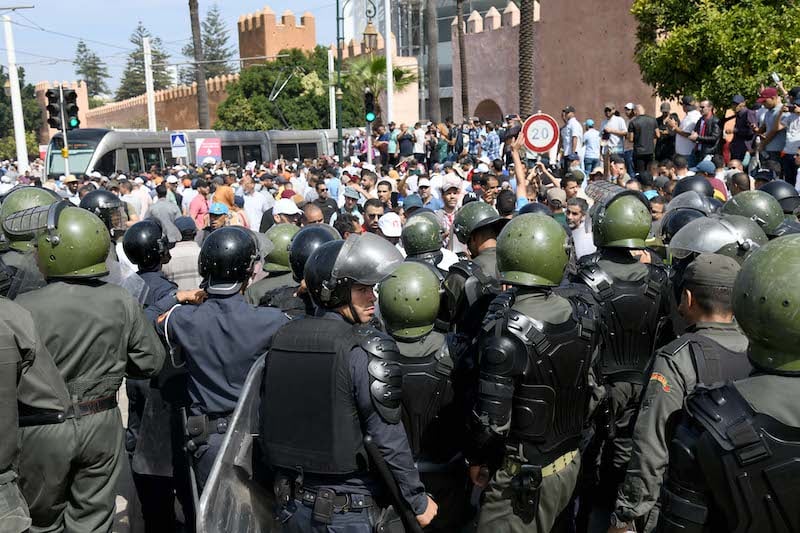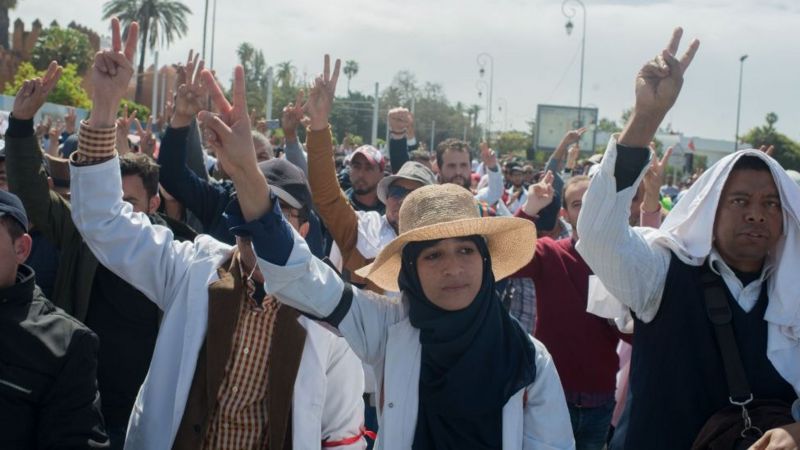The heated debates between the MOROCCAN Ministry of National Education, Early Childhood Education, and Sports and the educational labor unions regarding the new basic system approved by the government have raised concerns among parents and guardians due to the breakdown of communication channels between the two sides. This raises the possibility of recurrent strikes and disruptions that threaten the academic year, similar to what has occurred in recent years due to the lack of consensus between the supervisory ministry and contract teachers.
It appears that the rejection expressed by various coordination and factional bodies within the educational workforce towards this new basic system, describing it as “unfair and unjust,” is likely to exacerbate the problems in the current academic season. Many observers believe that withdrawing the trust in the unions that signed the agreement with the government and the “Benmoussa Ministry” deepens the crisis by making it difficult to find avenues for communication between the relevant parties on this system.

“Nurturing the Students”
Nour-Eddine Akouri, the President of the National Federation of Associations of Parents and Guardians of Students in Morocco, stated that “what we must keep in mind as we contemplate the repercussions of this tension in resuming the dialogue between the ministry and the educational workforce is the best interests of the students and protecting all their rights in learning and education.” He warned against “using children once again as human shields in the conflict between the ministry and the teachers.”
Akouri emphasized the “necessity of maintaining a thread of dialogue to avoid new problems, protests, and strikes that could disrupt the academic year.” He stressed the importance of ensuring the stability of public education and the teaching profession and added, “We must continue the reform and not allow setbacks, so it is necessary to ensure a significant level of consensus.”
He further explained that “the basic system includes encouraging elements for certain educational groups, but it seemed disappointing to some parties that have expressed their dissatisfaction with it.” He drew attention to the fact that “the ministry should continue to seek solutions and engage in the dialogue it initiated with the educational workforce to ensure a consensus, even if to a large extent, so that the educational groups perceive it as fair and just.”
The spokesperson added, “The basic system can be revised, and we want there to be a solution in the near future, with the prospect of serious dialogue between the ministry, unions, and educational coordination groups to find a formula for understanding that aligns with the development challenges of the education sector and its strategic advancement.” He stressed that “any step in this direction would be a rescue for the students who are the weakest link in this conflict.”
“The Tension Continues”
Younes Frashin, a member of the National Education Union CDT, which signed the January 14 agreement, confirmed that “the tension continues and will continue, threatening the achievements of the educational workforce and the rights of students, as the ministry bears responsibility for sneaking the basic system into the government council.” He noted that the educational unions had submitted numerous observations in a meeting on September 20, which are the same issues being raised by the educational workforce today after the approval of the mentioned system.
Frashin, speaking to Hespress, argued that “the ministry bears the responsibility for the existing tension, which will deepen further when it appears that the horizon is blocked for the educational workforce regarding continued discrimination in the teaching profession.” He pointed out that “the ministry did not adhere to what was agreed upon on January 14, which was the framework principles for the basic system, stipulating joint construction of this system before referring it to the government council, which did not happen.”
The union activist considered that “the consequences are not known until now, but it is possible that they will cast their shadows on the academic year and time.” He urged the ministry “to rectify the situation and adhere to what was agreed upon to reform the situation urgently, implement the stability workshops, take care of the social situation of those employed in the sector, and find a final solution to many of the outstanding issues that exacerbate the educational situation in our country.”
It is worth noting that the draft decree No. 2.23.819 recently approved by the government includes 98 articles related to various aspects of education in Morocco, especially in the field of national education. This includes financial compensation, academic academy teachers, and disciplinary penalties for violators of this system. The new system faced widespread rejection from the moment its draft was proposed before its approval, even from unions that signed the January 14 agreement. However, the Ministry of National Education and Sports stands by this new basic system, considering it a model that will help restore the public school’s reputation and regain citizens’ confidence in it, as teachers are the main actors in achieving the transformation in public education.



